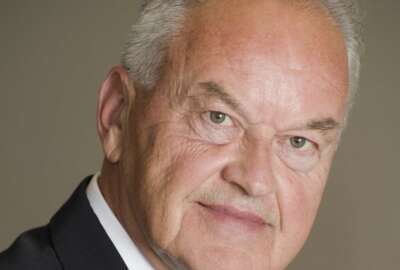
Can your health plan survive the coronavirus?
Do a little bit of shopping this year. It can give you great peace of mind if you know you’ve done the best you can before you get hit with a worst case scena...
Suppose you or a family member get the coronavirus next year and DON’T die? Suppose you come out of it, maybe with many medical problems to come, but alive.
Then what?
Last Friday, a record number of new cases — 126,480 — were reported in the U.S. Many say it will get worse as the cold weathers sets in after Thanksgiving.
Then what?
The good news, maybe, is that a potential vaccine with a 90% effectiveness rate may be on the horizon. From a U.S. firm at that, which mean we could get first crack at it. The problem, if it works, is distribution. And storage. It must be kept at 70 below 0 C, which means your Kenmore wouldn’t work. And it would require two shots. That means, best case scenario, is that it is well down the road for most of us. The average hospital cost of treating a coronavirus patient this year ranged from $42,000 to $73,000 according to Fox News. In October, The New York Times said for patients over age 60, the median charge for treatment was $61,912.
And that’s just one threat to your health. Anybody, at any age, can step in front of a bus, have a car wreck or get one of dozens of conditions or diseases which could break your own personal bank. Unless you pick a health plan with excellent catastrophic coverage. Which means that after your bills hit a certain amount, you are financially off the hook. In the federal health program, with its wide variety of plans, premiums and options, that so called limit-to-you, the catastrophic coverage runs from about $8,000 a year for a family plan to more than $20,000. Meaning, if you had the latter plan and had a worst-case medical year in 2021, you could be out of pocket more than $20,000. Could you handle that? Short answer, for most people — no!
Which means what? Well, we are currently at the beginning of the annual health insurance hunting season for federal workers, postal employees and retirees and their survivors. Between now and early December, you will be picking the health plan that will cover you and yours — during what may be one of the greatest pandemics in history — in 2021. This is not one where you throw a dart at a board and pick whatever gets hit. This requires some homework. The good news is the government has so many plans and options. Uncle Sam will pay 70-to-75% of the premium regardless of which plan you pick. And you can’t be turned down because of preexisting medical conditions. Or age. Or lifestyle. Or anything. You pay the same premiums whether you are a 21 year old vegan runner with four grandparents in their 100s, or you are a candidate for any number of accidents or ailments. Like COVID-19.
Walton Francis, longtime editor of the Washington Consumers Checkbook Guide to Health Plans, says the number one reason you have health insurance is for its catastrophic coverage. Yet many people still don’t get it. They look for a way to shave premiums — maybe self-plus one vs. family plan. Or go with a brand name health plan that’s been around forever. They never shop, and as a result many are paying too much up front in premiums. And down the road if their plan doesn’t give them top-notch catastrophic coverage. Starting today, we’ll have a series of live radio shows with Walt Francis on our Your Turn. The show starts at 10 a.m. EST streaming online here or on 1500 AM radio in the D.C. area. I’ll also have a series of columns listing best buys, according to Checkbook for retirees, people with and without Medicare, singles, couples and big families.
Checkbook is also available online. You can check it out here. Some agencies have subscribed for you. And it’s the best way to do your health insurance homework. You can shop from home or at work. Compare your plan to others. Look for changes next year in your plan and premiums. And checkout their network of doctors. Also check in here for a series on best-buys for singles, couples, big families, people who live abroad and retirees with and without Medicare.
Do a little bit of shopping this year. It can give you great peace of mind if you know you’ve done the best you can before you get hit with a worst case scenario. Also, Checkbook is offering a special promo this year for our listeners. You will be able to get a 20% discount if you use the promo code FEDERALNEWS. So be sure to let friends and coworkers know about it.
Stay safe. And be smart!
Nearly Useless Factoid
By Alazar Moges
Camp David, officially a Navy installation used as a retreat by Presidents of the United States, was previously known as “Shangri-La,” named by President Franklin D. Roosevelt for the mountain kingdom in Lost Horizon, a 1933 novel by James Hilton, when he took it over a few years after it opened in 1938. It was renamed in 1953 by President Dwight D. Eisenhower in honor of his grandson, Dwight David Eisenhower II.
Source: National Archives
Copyright © 2024 Federal News Network. All rights reserved. This website is not intended for users located within the European Economic Area.
Mike Causey is senior correspondent for Federal News Network and writes his daily Federal Report column on federal employees’ pay, benefits and retirement.
Follow @mcauseyWFED
Related Stories





